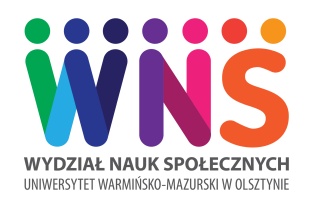Disinformation as a Hybrid Weapon: Russian Attacks on Poland and Lithuania
Disinformation has become one of the most serious threats to the national security of democratic nations in the 21st century. Russia, utilizing modern technologies and social media, is waging a systematic information war against NATO and European Union countries, with a particular focus on the eastern flank states, including Poland and Lithuania. In 2025, the scale and sophistication of these activities have reached an unprecedented level, posing a real threat to the democratic stability, social cohesion, and security of our countries.
The Russian propaganda machine operates in an organized and multidimensional manner. These are not random actions but an element of a broader hybrid strategy aimed at undermining citizen trust in democratic institutions, deepening social divisions, and eroding the credibility of media and experts. Poland and Lithuania, as countries bordering Russia and Belarus and actively supporting Ukraine in the face of Russian aggression, find themselves at the center of these attacks.
Russian disinformation campaigns utilize several key narratives. First, they attempt to portray Poland and Lithuania as aggressive states seeking to escalate the conflict with Russia. Second, they spread false information about an alleged threat from NATO and the presence of allied troops in the region. Third, they manipulate social issues, from migration and energy policy to historical matters, to provoke internal tensions and weaken social unity.
In the first months of 2025, a series of disinformation campaigns targeting Poland and Lithuania directly were recorded. One of the most alarming examples involved false reports of alleged provocations by Polish and Lithuanian border services against migrants on the border with Belarus. Russian state media and bot networks on social media mass-disseminated fabricated videos and photos intended to suggest the brutal treatment of civilians by Polish and Lithuanian services. The goal of these actions was to undermine the international image of both countries and weaken public support for their migration policies.
Another example is a disinformation campaign concerning military support for Ukraine. In February 2025, false information appeared en masse on Polish and Lithuanian social media about both countries allegedly transferring obsolete and malfunctioning military equipment to Ukraine, which supposedly jeopardized the security of their own armies. This narrative was reinforced by fabricated statements from „military experts” and manipulated statistics, designed to provoke public opposition to aid for Ukraine.
A particularly disturbing phenomenon in 2025 is the use of artificial intelligence to create deepfakes, false video and audio recordings depicting Polish and Lithuanian politicians. In March 2025, a fabricated recording appeared online in which a Polish minister was supposedly making provocative statements about relations with neighboring countries. Although the recording was quickly debunked as a fake, it managed to trigger a wave of disinformation and tension in the public sphere.
Russian disinformation employs a complex technical and organizational infrastructure. Social media plays a key role, where thousands of automated accounts (bots) and internet trolls operate, systematically disseminating false content. The algorithms of social media platforms, which promote controversial and emotionally charged content, unwittingly support these efforts, giving disinformation a wide reach.
Another important element is the use of seemingly independent news portals and blogs, which are in reality funded or controlled by Russian intelligence services. They publish content styled to look like objective journalism, which increases their credibility in the eyes of unsuspecting audiences. Additionally, Russian propaganda exploits local social and political tensions, amplifying existing divisions and conflicts.
The consequences of Russian disinformation extend far beyond the information sphere. Undermining trust in democratic institutions weakens the legitimacy of governments and hinders crucial decision-making regarding national security. Deepening social divisions can lead to internal destabilization, which is a primary goal of Russia's hybrid strategy. Finally, manipulating public opinion on issues related to support for Ukraine or the NATO presence can weaken Euro-Atlantic solidarity and the cohesion of allied actions.
In the face of these threats, it is crucial to build societal resilience to disinformation through media literacy education, the development of critical thinking skills, and the verification of information sources. International cooperation is also essential in identifying and countering disinformation campaigns, as well as investment in technologies capable of detecting false content, including deepfakes.
The "STRAT-AGAINST-DISINFORM" project, conducted by the University of Warmia and Mazury in Olsztyn and Vytautas Magnus University, responds to these challenges by offering comprehensive educational and research activities targeted at youth and adults in the border regions of Poland and Lithuania. Only through conscious and systematic efforts can we effectively protect our societies from the threat of Russian disinformation.


